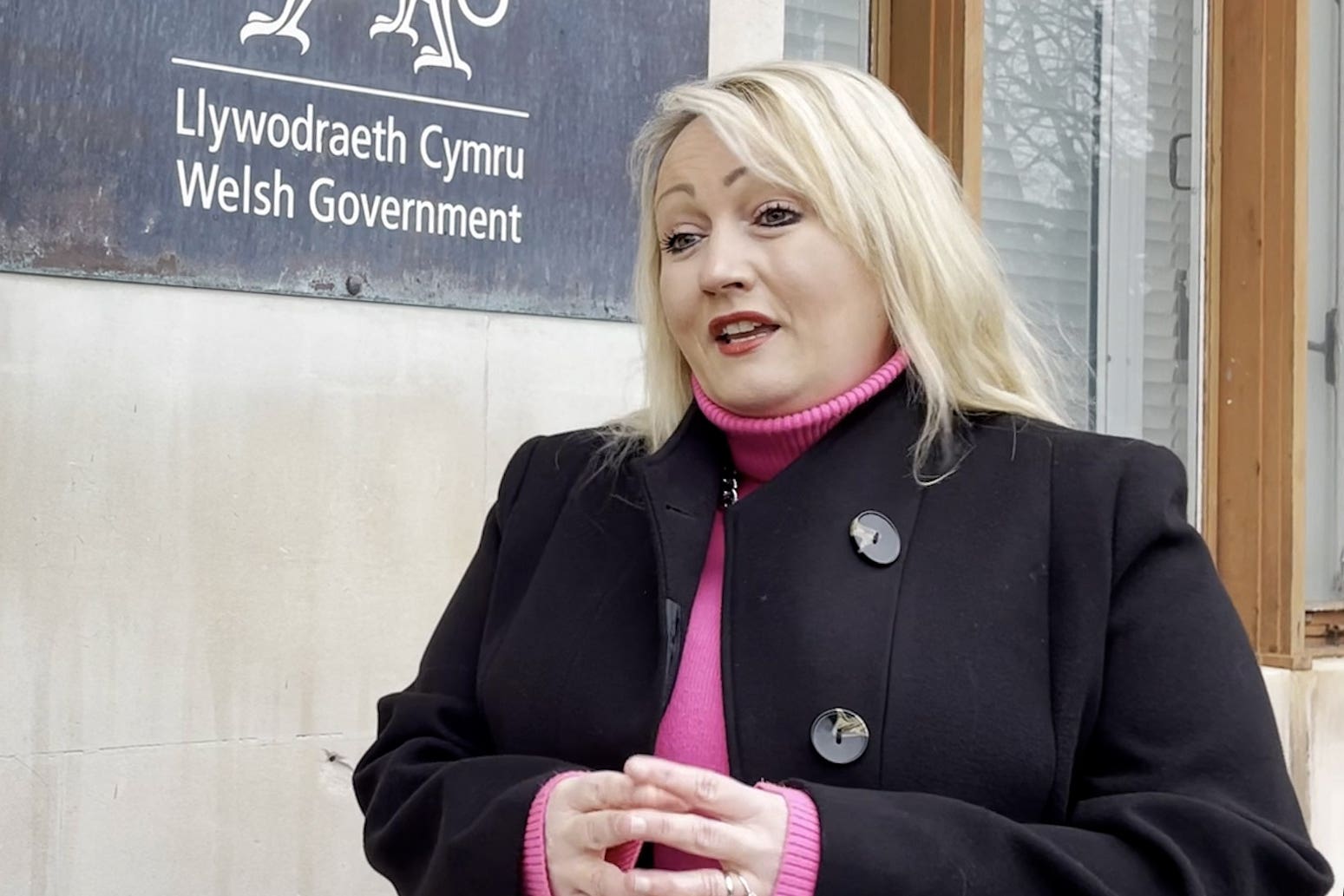Wave of public spending cuts announced in Wales with health services protected
The Welsh Government said it was forced to make ‘stark and painful’ choices for its draft budget for 2024-25.

A wave of public spending cuts have been announced in Wales, with pubs, shops and restaurants hit with a tax rise.
The Welsh Government said it was forced to make “stark and painful” choices for its draft budget for 2024-25, with health services and councils among the protected areas.
Business rate relief, brought in during the coronavirus pandemic for the retail, hospitality and leisure sectors, will be reduced from 75% to 40%, meaning higher bills.
The rate continues at 75% in England.
We have been presented with the most stark and painful budget choices in the devolution era
Ministers are also “carefully examining” whether university tuition fees, dentistry costs and charges for care for the elderly in their own homes need to be raised.
Finance minister Rebecca Evans said: “After 13 years of austerity, a botched Brexit deal, and the ongoing cost-of-living crisis, this is the toughest financial situation Wales has faced since the start of devolution.
“Our funding settlement, which comes largely from the UK Government, is not enough to reflect the extreme pressures Wales faces.
“We have been presented with the most stark and painful budget choices in the devolution era. We have reshaped departmental spending plans so that we can invest more in the NHS and protect core local government funding for schools, social care and the other services we rely on every day.
“While the UK Government has not provided Wales with a funding settlement that recognises the impact of inflation, we have made changes to our spending plans and targeted investment towards the public services we all value the most.”
The budget includes an extra £450 million for the NHS and the core local government settlement will increase by 3.1%.
David Phillips of the Institute for Fiscal Studies (IFS) said the budget “clearly prioritises core NHS services, making very tough choices across a range of other services to provide a £730 million (8%) boost to what they pencilled in to spend this time last year”.
At a time when customers are tightening their belts and businesses are grappling with rising costs, this help is desperately needed if we are to avoid more pubs, clubs and breweries being lost for good to communities across the country
The Welsh NHS Confederation said: “NHS leaders don’t take it for granted that the NHS receives a huge proportion of the Welsh Government budget. But the NHS is only one factor contributing to the health of the population, so we must ensure sufficient funding for sectors that directly impact the wider determinants of health, including social care.”
There are cuts to planned spending on other areas of health and social services, such as mental health (20% lower than expected) and support for childcare and play (17% lower), the IFS said.
There are further big reductions to funding for arts and culture, economic development, environmental protection, equalities, higher education, non-railway transport spending and central administrative services.
Rural affairs is the worst-hit area.
Apart from the NHS, the only other service that will see a boost to funding is Transport for Wales, the IFS said.
Mr Phillips added: “Unlike in England, smaller properties will see their bills increase but bigger properties will see an increase of 5% rather than 6.7%.
“And relief for the retail, hospitality and leisure sector will be reduced to 40%, with indications that the Welsh Government plans to phase it out over time.
“In the short term this will likely increase overall property costs for affected businesses but in the medium term rents will likely be lower as a result, meaning that it is landlords that will be hit.”
Chris Charters, of the Campaign for Real Ale, said: “At a time when customers are tightening their belts and businesses are grappling with rising costs, this help is desperately needed if we are to avoid more pubs, clubs and breweries being lost for good to communities across the country.”
The draft budget was published on the Welsh Government website while the Senedd is in recess, a move criticised because politicians were unable to scrutinise spending plans.
Welsh Conservative leader Andrew RT Davies said: “This Labour budget is one of soundbites over substance. Labour ministers have run Wales for 24 years, failing to reform public services and deliver results for the people of Wales; we have record waiting lists in our Welsh NHS, with over 26,000 people waiting two years or more for treatment.
“The Welsh Conservatives would spend every penny the Welsh Government receives for health on health and deliver a substantial workforce plan to tackle Labour’s excessive waiting lists.”
Meanwhile Plaid Cymru said the draft budget is “unsustainable” and will have a “serious long-term impact” on Wales.
Leader Rhun ap Iorwerth added: “We’re disappointed that our request to recall the Senedd today so we could begin to discuss this draft budget and hold the Labour Government to account.”
Senedd members will vote on the plans in the new year.
Bookmark popover
Removed from bookmarks